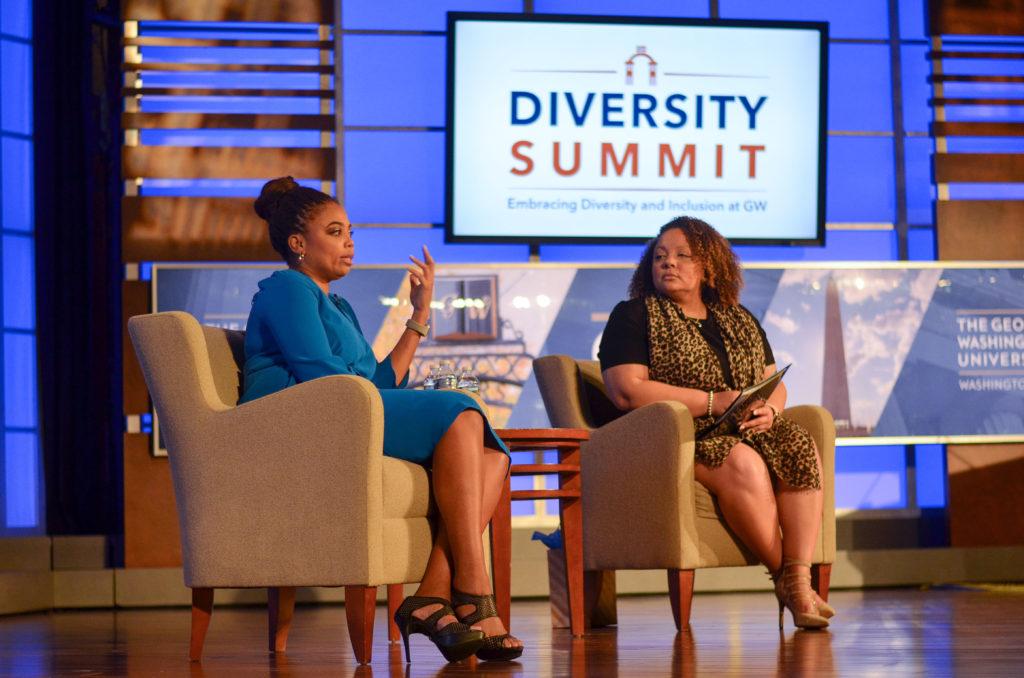In front of a crowd of roughly 250 people, Emmy award-winning journalist Jemele Hill kicked off the University’s fourth annual Diversity Summit at the Jack Morton Auditorium Thursday.
Hill, a reporter for The Atlantic, discussed the importance of representation in journalism and how a lack of diversity has affected news coverage and the upcoming midterm elections. The diversity summit – which took place in the fall for the first time this year – is a yearly conference focused on “embracing diversity and inclusion at GW.”
The keynote included introductions from University President Thomas LeBlanc and Caroline Laguerre-Brown, the vice provost for diversity, equity and community engagement.
LeBlanc said he hoped the summit would “provide a space for members of the GW community to engage in meaningful conversations” about topics like race and bias, which he said seem “more important than ever right now.”
“I encourage you to stay engaged, have conversations and lean into all that is offered over the next day, here at the summit,” LeBlanc said. “Your participation is a critical step in helping us make progress on diversity and inclusion at GW.”
Hill said when she first joined the staff of the Orlando Sentinel in 2005, she was the only black female sports columnist at a daily newspaper in the United States. Currently, she said, there are 44 female sports columnists in the country and 38 work at ESPN – and only 11 of the total sports columnists are women of color.
She said she became a journalist to “tell the truth” and “tell stories” – but said newsrooms that “can’t even reflect what they’re covering” can’t accurately understand and cover issues that disproportionately affect nonwhite communities, like voter suppression.
“If you’re going to cover underrepresented communities, your newsroom should look a lot different,” Hill said.
Hill said the lack of diversity within newsrooms and in sports media has negatively impacted news reporting, like the coverage of former San Francisco 49ers quarterback Colin Kaepernick in 2016. Kaepernick caused a firestorm for kneeling during the national anthem at football games as a protest against racial injustices – and Hill said the media contributed to the switch in conversation to focus on “patriotism rather than about police brutality.”
She said that today, the press wrongly avoids using headlines that include phrases like “white supremacist,” “white nationalist” and “Nazi sympathizers.”
“The whole basis of our profession is supposed to be truth,” Hill said. “If we can’t tell the truth, then we have not only lost our credibility, but we’ve lost your trust.”
In her closing remarks, Hill said she wanted the audience to remember two things: “bad things happen when good people do nothing” and “to be silent is to be complicit.”
“You cannot afford to be silent because you wake up and you see all these things happening,” she said. “You don’t want to be the person not listening and staying silent.”
Hill said she often sees politicians use the slogan “if we vote, we win,” to encourage young people to cast ballots during elections. She said it’s important for young people to understand that their voices and their votes matter because their decisions can spark change nationwide.
“If young people, if people of color, showed up at the polls, this country would look so much different,” she said.





